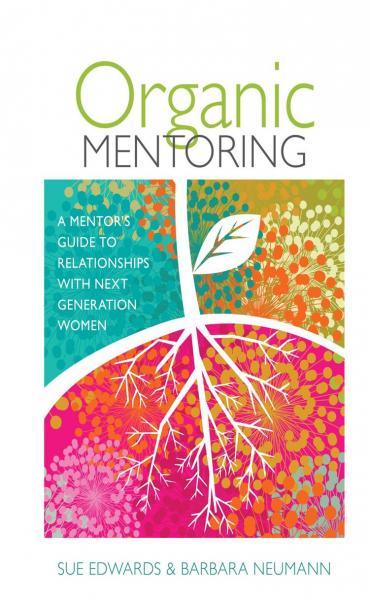
Encourage mentees while bursting the self esteem bubble
The blockbuster television show and singing competition American Idol interviewed one of the female contestants that managed to secure a coveted place as a top twelve finalist. “It’s really true,” the seventeen-year-old contestant bubbled, “You really can be anything you want to be if you believe in yourself and want it badly enough.” Never mind that thousands of contestants were turned away from the show even though they believed in themselves and wanted it badly. The ubiquitous promise rang hollow for them as they watched their dreams crash. Many young women find that roadblocks or limitations of one sort or another prevent them from achieving their optimistic goals. Many are unprepared for the harsh realities of life but an organic relationship with a mentor can help them navigate the real world. Mentors must learn how to encourage mentees without adding to "self esteem" hype that can set them up for unrealistic expectations.
Barbara's three children sat cross-legged on the floor, eyes glued to the TV. Calm settled over their living room as the gentle middle-aged man opened a door, put on a cardigan, greeted his “neighbors,” and invited them into his neighborhood. She was grateful for the thirty-minute break that allowed her to address chores unhindered. Every weekday Mr. Rogers nurtured millions of young minds and taught children to believe in themselves because they were special and valuable. This message was heard again at school where teachers labored to cultivate a child’s positive self-image by offering large doses of affirmation for being a unique individual. It even wafted from their car radio as Christian musicians told children they were special from head to toe, and they all sang along.
The 1970s gave birth to the self-esteem movement. By the 1990s it was an entrenched part of American culture and self-fulfillment became a personal right. Generational researcher Jean Twenge, a Postmodern herself, remarks, “We simply take it for granted that we should all feel good about ourselves, we are all special, and we all deserve to follow our dreams.”
Self-esteem is a person’s evaluation of their personal worth, and it’s widely believed children with high self-esteem will be successful in life. They are assured that if they believe in themselves they can be anything they want to be. As a result the majority of Millennials, our youngest mentees, are highly optimistic and believe they will do something great. Not just worthwhile, but great. Sounds wonderful, right? We should all feel this way about ourselves!
Not so fast. Twenge’s research also shows the self-esteem movement can cause problems when children grow up. Too often the fallen world does not treat them as special, they discover they can’t really be anything they want to be, and their work is ordinary. “GenMe’ers are also often woefully unprepared for what we encounter in the ‘real world’ of the marketplace.” Self-esteem actually has little to do with success in life. People with high opinions of themselves still make destructive choices and wind up in dead-end situations.
We now have a generation of young people with high self-esteem, but nagging inner suspicions that they are actually deficient. Many hold high expectations for their life, but struggle to make them happen. How does a young mom cope when her life of diapers and runny noses is anything but great? Failure to meet optimistic goals often leaves behind confusion, disappointment, and anxiety, and too many young women feel like failures before they are thirty.
We don’t need to return to the days when parents feared that praise would spoil their children. Constant criticism destroys tender souls, as many older women know from experience; however, excess praise without substance can also be damaging. The peril of the pendulum. Often next generation women need help to rethink their expectations for life. A shift from an optimistic me-centered vision to a God-centered perspective may help them comprehend God’s purpose for their lives, and restore biblical balance and inner peace. Here a mentor can make all the difference. When life is processed together, a mentor can help a young woman identify unrealistic goals that stall her spiritually, provide God-centered perspectives, temper self-esteem with self-control, and encourage her to follow God given dreams. This happens when we “see” our mentee and the deep needs in her life.
So encourage your mentee but help her prepare for real life where not everyone wins a trophy, a first place ribbon, or a place on American idol. She needs to value herself as God's unique creation, redefine the word great, and find God's purposes for her life.


